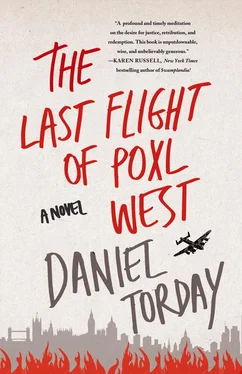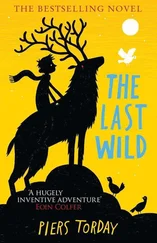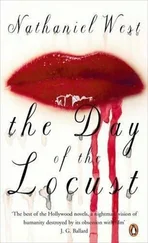When we arrived in Waltham, Mr. Big wasn’t there. One of the clerks — no one we knew — took out books of cards for us to look through.
“What about that Larry Bird Topps’?” my father said. It was twenty-five dollars, an exorbitant amount back then to spend on a card. “You were just talking about him.”
I told my father I wasn’t that into basketball cards, so we turned to the curio case that held baseball cards. There was a 1976 Topps Fred Lynn, statistics on the back documenting the year he won both Rookie of the Year and MVP. A Yastrzemski third year. Even a couple Mickey Mantles. Somehow they all seemed trivial compared to tales of Uncle Poxl’s feats of war. My father must have noticed something in my face. He turned to the clerk and pointed to a card on the top level.
“Ted Williams,” my father said. “’51 Bowman. You know he had to stop playing for more than two years, in his prime.”
“He did?” I said.
“Yeah, he enlisted in the army.”
“Really?”
“They say he gave up the best years of his career, the height of his hitting powers, to fight in the war.”
My father looked over the cards in the case where we were standing. I was a card collector and a Sox fan, and I’m sure I had to have heard this story before, but somehow it had never registered with me. It hadn’t stuck. Now I looked down at the cartoon depiction of Williams’s handsome face twisted upward, the bat swung back around his body at the end of a perfect cut.
“You want it?” my father said.
On the plastic case the card was held in, a white sticker read “$140.”
“Are you serious?” I said. My mother hated my baseball-card collecting, thought the money we spent on it was money wasted. Did I think at the time this was strange, my father overcompensating for Poxl’s absence? Because in remembering it now, I see it for what it was. I’d grown dour on a level that must have begun to concern him. Here we were, attempting to rectify it. If this fact registered subconsciously, it was quickly forgotten in the excitement of what we were about to do. I was getting a thing I wanted and never dreamed I could have.
“They say these will be a good investment in the long term,” my father said. “Like a relic of history. You’ll have to keep it in good shape — not take it out to show friends or anything.”
For weeks I’d wanted something I could put my hands on, something that had been denied to me: Poxl had promised to send books and he hadn’t, and though my father had bought us copies, that hadn’t sated me. But he’d recognized need in me, and here he’d pulled off an emotional sleight of hand: He’d gifted me something I didn’t know I wanted. We don’t eat because there is food. We eat because there is hunger. It didn’t occur to me then what Poxl West had been doing all along, filling in for my grandfather. He was attempting to plug an emotional hole, not to acknowledge it as one. Perhaps that’s what left me wanting in those days since his absence; and perhaps it was obsession, but not obsession with what I thought I was obsessed. It was a doubling down on absence. Wasn’t this the fissure I didn’t see then, what Poxl’s heroism did for me as well? Shouldn’t I have seen what Poxl didn’t see himself — that his bombing Nazi Germany didn’t undo his parents’ deaths, the morbid facts I was attempting to sidestep in putting down Wiesel in favor of West?
Should, shouldn’t. We can’t undo the past. The fact was I didn’t see it. It looks so clear now saying it, but that’s not what I saw. I saw Ted Williams’s handsome, expensive face staring up at me, and I saw Poxl West’s handsome face, and I felt sated. Who could blame my father for wanting to give it to me, and who could blame Poxl.
I didn’t feel any of that when I was fifteen years old and in possession of a baseball card so valuable I would never have thought I’d own it. On the ride home I clutched the paper bag the clerk had put the card in and looked out the window, thinking of someone other than my uncle for the first time in weeks.
The shift my father had helped make in my mind didn’t last long. I read about Ted Williams’s war heroism, but soon after I also read about his personality. Williams was known to be a surly figure — wouldn’t talk to fans, refused to sign autographs.
My uncle had sat and signed books for anyone who’d wanted one signed.
We went one weekend to visit my mother’s great-aunt Leah at her apartment in Quincy, the only one in her family who lived here in Massachusetts. She was by far the most Bostonian Bostonian in my mother’s family, and she subscribed to NESN so she could watch every game now that she was too old to travel from Quincy to Fenway. She told me about how she had once been on an airplane with Williams, in the mid-seventies.
“Wouldn’t so much as make eye contact with me when I went up to tell him I was a fan,” my great-great aunt Leah said. “I was wearing a Sox cap at the time and everything. Written the man off ever since.”
When I got home that day I put the Williams card in a drawer. I pulled out Skylock for another read and it felt like some buzzing at the back of my head had been silenced. I didn’t have Poxl near, but that couldn’t negate the fact that I had read his book. I found what I could on the RAF in our school library. But now when Rabbi Ben brought up Poxl in Hebrew class, I would find some way to deflect the conversation, not wanting to talk again about the idea of Poxl’s coming to visit us — not wanting to admit I hadn’t spent time with him in months, and I hadn’t asked if he’d come see us. I could talk about Skylock, but not its author.
“So what’s the deal with Kabbalah, anyway?” I said one Monday evening when conversation had drifted away from Hebrew and I feared it might drift toward me. But there was real need in my voice, and whether it was for an absent uncle or an unknowable God, everyone in the room could hear it. Rachel Rothstein rolled her eyes and I immediately wished I hadn’t said a word, but Rabbi Ben sat up straight.
“You never seemed all that interested before,” he said. But before I had time to respond, he said, “Shit, I wrote my dissertation at Yeshiva on Moses de Léon. He was the thirteenth-century Spaniard who wrote the Zohar, the central text of Jewish mysticism. Check it out, guys — he believed that God was in everything around us. The world started in ein sof, he said. Who can translate that term, Ein Sof? ”
Our Hebrew had gotten us only so far that Rachel could say she knew the first word, Ein. It meant “one.”
“It means ‘nothingness.’ One endless nothingness. The world started in nothing, and even though God made something — Adam, Eve, a garden, Zion, later us — the original state of our souls, of our existence, was nothingness. The Zohar says we need to return to that state if we want to touch the Godhead.”
“I want to touch some kind of head,” Zach Swartz said.
Everyone cracked up.
“What’s that, dude?” Rabbi Ben said. Now everyone just looked down at their feet. “Well, look, Eli, if you want to hear more about Kabbalah, let’s definitely find some time to rap outside of class. I’ll give you some Gershom Scholem. You’d like Major Trends in Jewish Mysticism. ”
I didn’t know what to say. I told him that was fine, and everyone in class looked at me like I’d lost my mind. But I hadn’t lost my mind. I just was missing my uncle, and while he wasn’t my uncle, Rabbi Ben was here.
After class that night I went into his office, where he walked around his overloaded bookshelves and showed me the major texts of the modern study of Kabbalah. Some part of me had come to think that the elders at our shul read only books about the atrocities of World War II, and all at once my eyes were opened to the fact that mostly on Rabbi Ben’s shelves were texts of Talmudic study, midrash, and Kabbalah. We only see what we want when we’re in need, and for months I’d seen only one history. Now I was seeing something else. Here was one thing Poxl West hadn’t talked about, but which was always lingering: God.
Читать дальше












